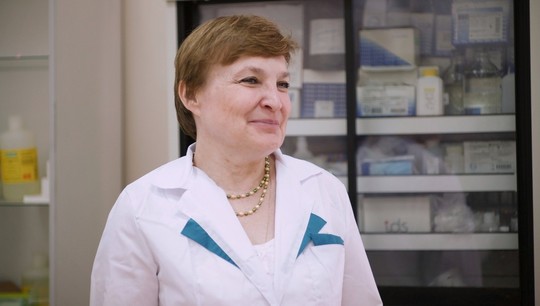Ural Chemists Achieve Breakthrough: Creation of Iodine-Enriched Yogurt
Chemists from the Ural Federal University and the Ural State University of Economics have created yogurt enriched with iodine. The new product will help reduce iodine deficiency and the likelihood of digestive diseases. The researchers described the new product, its properties and characteristics in the Bulletin of the South Ural State University. The research was financially supported by the Russian National Foundation (Project No. 20-66-47017).
Yogurt was produced in the UrFU by the thermostatic method from cow’s milk with fat content of 1% with the addition of lyophilized yogurt starter (bacteria of cultures Streptococcus thermophilus and Lactobacillus delbrueckii subsp. Bulgaricus). A new generation of iodized milk protein has been added.
“The iodized milk protein we have chosen dissolves well in milk at room temperature (20-24°C) without forming a precipitate. In the production of enriched yogurt, the additive can be added directly to the milk when obtaining a normalized mixture or at the stage of fermentation, which almost does not change the classical production technology,” says Elena Kovaleva, Head of the Laboratory of Biotransformation Technologies and Food Chemistry of the Research, Education and Innovation Center of Chemical and Pharmaceutical Technologies of the UrFU.
As a result of the research, the scientists chose the optimal concentration – 10 mg of iodized milk protein per 1 kg of milk. Thus, a 100 g portion of yogurt contains 25 µg of iodine, which is 17 percent of the daily requirement (i.e. only 1 g of iodized substance per 100 kg of normalized milk is needed in production).
“In choosing a reasonable amount of iodized milk protein, we took into account the recommended norms for average daily iodine intake. In addition, we used state standards, including those for organoleptic indicators of yogurt quality: appearance, consistency, taste, smell, color, acidity, pH and others. The concentration of iodine was also measured seven days after the yogurt was made: after a week it did not decrease and amounted to 17 percent of the daily requirement,” says Julia Savlukova, Laboratory Researcher at the Laboratory of Biotransformation Technologies of the Ural Federal University Research Center of Chemical Engineering Technologies.
It should be noted that today iodized salt, food additives for enrichment of bakery products and other foods, as well as food supplements containing organic iodine are used to prevent iodine deficiency. Nevertheless, iodine deficiency is observed throughout Russia. To eliminate iodine deficiency, for example, with the help of iodized salt, from 90 to 98 percent of the population should use it all the time. In our country, iodized salt is used in the diet of no more than 35 percent of the population.
“According to the Endocrinology Research Center, up to 70 percent of the Russian population suffers from varying degrees of iodine deficiency, which is often accompanied by the development of hypothyroidism and cognitive decline. Despite the fact that the average requirement for iodine is only 150 µg per day, its long-term deficiency in the diet leads to the development of a number of pathological conditions, which are summarized under the general term “iodine deficiency diseases”: the development of endemic goiter with hypothyroidism, impaired synthesis of thyroid hormones and suppression of thyroid function, metabolic slowdown, arterial hypotension,” explains Elena Kovaleva.
Before thyroid enlargement begins, iodine deficiency manifests itself in reduced intellectual abilities and skills, chronic fatigue, and delayed mental and physical development in children, the researchers add. However, excess iodine in the body is also dangerous, the scientists warn. If a person receives iodine in amounts exceeding the maximum allowable, thyrotoxicosis may occur, especially if it occurs against the background of initially low iodine intake and, in particular, in the presence of nodular changes in the thyroid gland. In general, the regulation of iodine metabolism in the body is a complex biochemical process.

